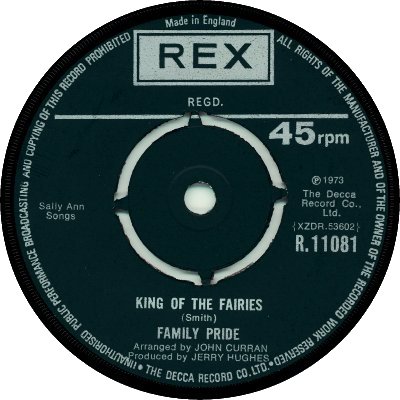
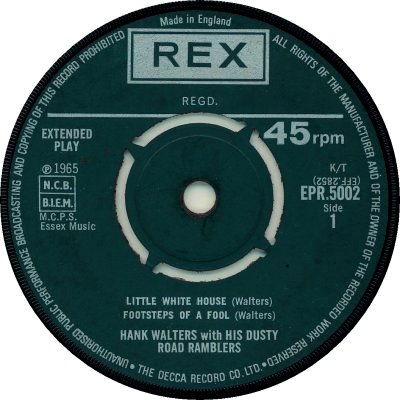
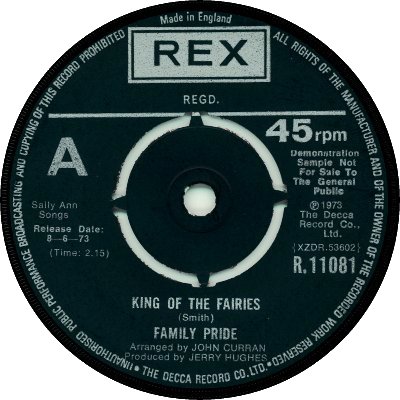
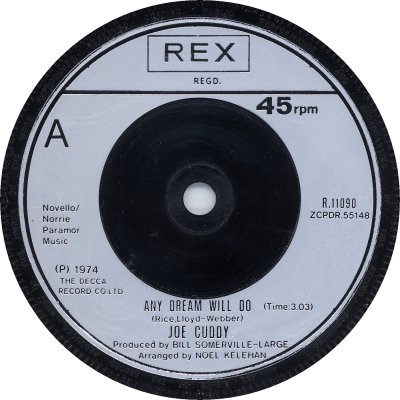
One of the older labels in the book. Rex dates back to the 1930s. It was started up by the Crystalate Gramophone Record Manufacturing Company in 1933 as a lower-price label, and was taken over by Decca, along with the rest of Crystalate's record division, in 1937. It featured mainly popular dance band and vocal items, by the likes of Billy Cotton, Jay Wilbur and Leslie Sarony, but in addition to its main line it had a green-labeled Irish series. In early 1948, after more than 2,200 releases, Decca put Rex into hibernation, but it retained the use of the name - 'Billboard' of the 3rd of April 1949 reported that London / Decca had successfully defended its rights against another firm which had called its label Rex. In passing, the article stated that London was using Rex as an outlet for its Irish records.
Happily the summer of 1965 saw Rex being taken down from the shelf, dusted and put back into use as an outlet for Decca's Irish product, which until that point had come out on the Beltona label (q.v.) alongside Scottish material. 'BB' of the 10th of July observed that Decca was reintroducing the label 'after a long lapse' and was issuing several singles, two in the UK and five in the Republic. The revived Rex came under the umbrella of Decca's Dublin-based distribution company Irish Record Factors, whose manager by that time was Michael Geoghegan. It went on to serve as a vehicle for Irish music, of the popular kind rather than the traditional. It continued to cover both Britain and the Republic of Ireland, and as the markets differed to a certain extent the release schedules didn't always correspond - some Irish issues weren't released in the UK, which accounts for the gaps in the discography below.
After several years of niche-market sales Rex tasted popular success when Dana's 'All Kinds Of Everything' b/w 'Channel Breeze' (R-11054; 3/70) topped the Singles Chart in 1970, on the back of its success in the Eurovision Song Contest. Her follow-up, 'Who Put The Lights Out' b/w 'Always A Few Things' (R-11062; 1/71) also charted, reaching the No.14 spot, but that proved to be Rex's only other hit. Rex continued to plough its furrow, but it rarely made the pages of the music press. 'Music Week' of the 8th of April 1972 referred to it in passing as Decca's 'house' Irish label, and some ten months later 'MW' of the 17th of February 1973 informed its readers that Rex operated out of Irish Record Factors and that Michael Geoghegan was acting as its label manager in addition to his duties as general manager of IRF. Rex's music policy, the article added, as basically an MOR one.
The final Rex single of the '70s in Britain came out in 1976, but Irish punters were treated to another eleven singles after that, the last one coming out in 1979. Decca was bought by Polygram in the spring of 1980; Irish Record Factors seems to have expired in that same year, perhaps as a consequence. That wasn't quite the end for Rex. Joe Cuddy's version of 'Any Dream Will Do' b/w 'Close Every Door' (R-11090; 3/74) from 'Joseph And The Amazing Technicolour Dreamcoat' had topped the Irish charts in 1974; it never registered in the UK but it proved a steady enough seller to remain on catalogue and to deserve re-pressing by Polygram in the '80s, which resulted in injection moulded copies (4). I don't usually include scans from the '80s but as that one has the original year of release on it I thought it was worth adding out of interest. In addition Polygram brought Rex out of retirement as a one-off in 1983 for 'Love On Your Mind' b/w 'Can't Do Better Than That' by Audio (EURO-1; 4/83), an unsuccessful contender for Britain's 'Song For Europe'.
One label design served throughout the '60s and '70s, though the sea-green colour varied a little. Its 'boxed logo' design (1) echoed that of Decca and London, and was markedly less exuberant than the main one from the '30s and '40s, which had featured golden lions on a black background and had carried the legend 'The King Of Records'. Demo copies were overprinted in a similar manner to that of other Decca-associated labels, with a medium-sixed 'A' and the appropriate text (3). Numbering was in an R-11000 series for singles, while EPs, of which there were few, had their own EPR-5000 numbers (2). There were two more 'Rex' labels in the '80s, but they are outside the scope of this site. The discography below only covers the 1970s. As stated above, there are gaps here and there because of records with those numbers only being issued in Ireland.
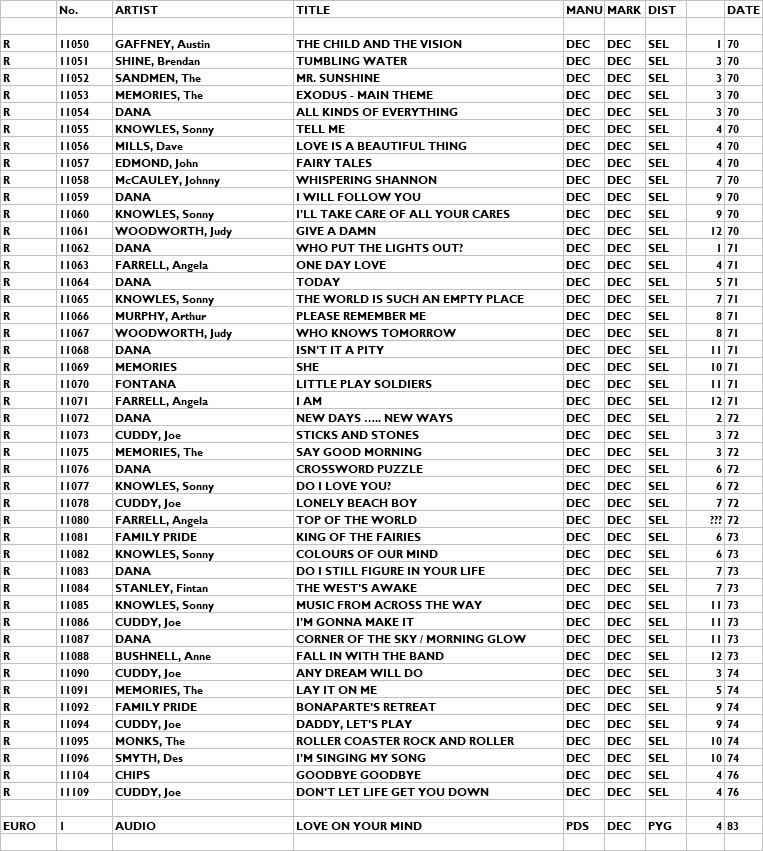


Copyright 2006 Robert Lyons.

